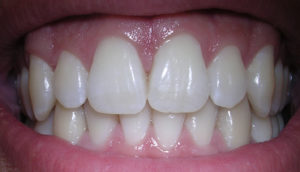![]() Studies finding health effects from BPA keep appearing. BPA (bisphenol-A) is a chemical used in many everyday products (e.g. the lining of soda and food cans, store receipts) and so almost all humans are exposed to it daily. Researchers are getting increasingly worried about BPA and related chemicals (including substitutes for BPA such as BPS) because they are endocrine (hormone) disruptors with health effects in humans and animals. This chemical is so widely used that more than 7 billion metric tons of it are produced annually throughout the world.
Studies finding health effects from BPA keep appearing. BPA (bisphenol-A) is a chemical used in many everyday products (e.g. the lining of soda and food cans, store receipts) and so almost all humans are exposed to it daily. Researchers are getting increasingly worried about BPA and related chemicals (including substitutes for BPA such as BPS) because they are endocrine (hormone) disruptors with health effects in humans and animals. This chemical is so widely used that more than 7 billion metric tons of it are produced annually throughout the world.
Unfortunately the US government keeps agreeing with the chemical industry that the chemical is "safe", and disregarding the results of studies finding health effects (reproductive effects, obesity, etc). Of course the chemical industry is fighting tooth and nail to discredit studies done by independent researchers - a lot of money is at stake.
The following are excerpts from an article describing the latest study finding health effects from low dose exposure from BPA - it altered the amount of insulin released by the person (and so perhaps influencing the development of type 2 diabetes). What was worrisome is that the dose is considered "safe" by the US government - and in the study people were exposed to it once, while in real life humans are exposed to such doses multiple times daily.
The good news is that BPA is excreted within a day, but the bad news is that we the keep being exposed to it. By the way, substitutes for BPA (such as BPS) are just as bad, and are also endocrine disruptors - after all, they're all related chemically. So buying BPA-free canned food or plastic won't help a person avoid endocrine disruptors - these also leach into food. From an article written by Lynn Peeples at Environmental Health News:
In a scientific first, researchers gave people BPA — and saw a link to precursor of type 2 diabetes
In a scientific first, researchers gave people BPA — and saw a link to precursor of type 2 diabetes. The controversial study suggests that BPA exposure deemed safe by the feds could alter the amount of insulin released and elevate people's type 2 diabetes risk.
A first-of-its-kind study of a small group of people exposed to a very small amount of bisphenol-A (BPA) is raising questions about the federal government's stance that low doses of the common chemical are safe — as well as the ethics of conducting such an experiment on humans.
...continue reading "Exposure to BPA Has An Effect on Insulin Levels"

 Both males and females should consider trying to lower their exposure to endocrine disrupting chemicals (hormone disrupting chemicals) when contemplating pregnancy. These chemicals are found in many personal care, food packaging, and plastic products. They can interfere with natural hormone function and are linked to a wide assortment of health problems. Evidence (like this
Both males and females should consider trying to lower their exposure to endocrine disrupting chemicals (hormone disrupting chemicals) when contemplating pregnancy. These chemicals are found in many personal care, food packaging, and plastic products. They can interfere with natural hormone function and are linked to a wide assortment of health problems. Evidence (like this  Uh oh....A recent study found that every baby teether tested (and they tested 59 teethers), including all those labeled "BPA free", leached various parabens, bisphenols (including BPA or bisphenol A), and other endocrine disrupting chemicals. Infants chew and suck teethers to soothe the pain from their teeth emerging in the first year of life.
Uh oh....A recent study found that every baby teether tested (and they tested 59 teethers), including all those labeled "BPA free", leached various parabens, bisphenols (including BPA or bisphenol A), and other endocrine disrupting chemicals. Infants chew and suck teethers to soothe the pain from their teeth emerging in the first year of life. Many of us grew up having silver colored dental fillings (called dental amalgam) in our teeth. Dental amalgam has been used for over 150 years for the treatment of dental cavities (caries) because it is durable, easy to use, and affordable. But it is composed of about 50% elemental mercury (Hg) and so it may release a certain amount of mercury both during the time the cavity is filled and afterward with normal wear. Mercury can cause adverse health effects, such as effects on the central nervous system, kidneys, and immune system. Human mercury exposure also occurs through the consumption of mercury (MeHg) contaminated seafood.
Many of us grew up having silver colored dental fillings (called dental amalgam) in our teeth. Dental amalgam has been used for over 150 years for the treatment of dental cavities (caries) because it is durable, easy to use, and affordable. But it is composed of about 50% elemental mercury (Hg) and so it may release a certain amount of mercury both during the time the cavity is filled and afterward with normal wear. Mercury can cause adverse health effects, such as effects on the central nervous system, kidneys, and immune system. Human mercury exposure also occurs through the consumption of mercury (MeHg) contaminated seafood. Studies are accumulating evidence that the hormone disrupting effects of compounds BPA (bisphenol A) and BPS (the common substitute for BPA) have numerous negative health effects in humans, including reproductive disorders. But now a second BPA substitute - BPSIP - is also being found in humans, and may be even more persistent than BPA and BPS. This is because they're all chemically similar, and all three are endocrine disruptors. This article points out that they have slightly different effects, and when we are exposed to more than one of them (which we are), then the health effects will be even more worrisome.
Studies are accumulating evidence that the hormone disrupting effects of compounds BPA (bisphenol A) and BPS (the common substitute for BPA) have numerous negative health effects in humans, including reproductive disorders. But now a second BPA substitute - BPSIP - is also being found in humans, and may be even more persistent than BPA and BPS. This is because they're all chemically similar, and all three are endocrine disruptors. This article points out that they have slightly different effects, and when we are exposed to more than one of them (which we are), then the health effects will be even more worrisome. A recent study found that school age children with higher levels of BPA in their bodies were more likely to have an ADHD (Attention Deficit Hyperactivity Disorder) diagnosis. BPA or Bisphenol A is everywhere (in plastics, linings of cans, etc), found in varying levels in almost everyone, but at least it is eliminated fairly rapidly from the body. So trying to avoid BPA (e.g., buying and storing food in glass containers rather than cans or plastic containers) can quickly lower levels in the body. From Environmental Health News:
A recent study found that school age children with higher levels of BPA in their bodies were more likely to have an ADHD (Attention Deficit Hyperactivity Disorder) diagnosis. BPA or Bisphenol A is everywhere (in plastics, linings of cans, etc), found in varying levels in almost everyone, but at least it is eliminated fairly rapidly from the body. So trying to avoid BPA (e.g., buying and storing food in glass containers rather than cans or plastic containers) can quickly lower levels in the body. From Environmental Health News: There is increasing concern over phthalates and BPA and their effects on human health. It turns out that a big source of phthalates (which are known endocrine disruptors) in humans may be fast food.
There is increasing concern over phthalates and BPA and their effects on human health. It turns out that a big source of phthalates (which are known endocrine disruptors) in humans may be fast food.